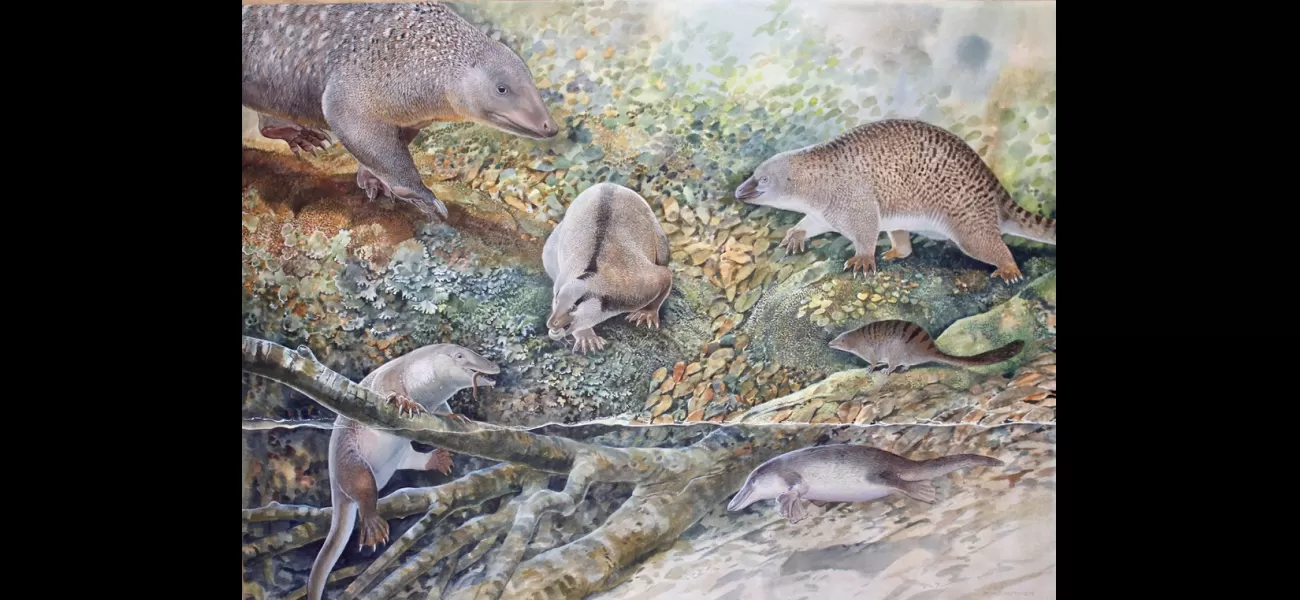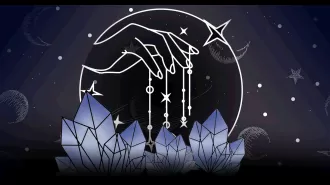Fossil reveals hybrid of platypus and echidna.
Scientists say a prehistoric mammal that laid eggs flourished in Australia during a "monotreme era".
May 27th 2024.

In a groundbreaking discovery, a team of researchers has unearthed the remains of a prehistoric species in New South Wales that is being dubbed an "echidnapus". This species, which lived approximately 100 million years ago, is believed to have been a distant relative of the modern platypus and echidna - the only monotremes in the world today.
According to Professor Kris Helgen, the director and chief scientist of the Australian Museum Research Institute, the fossils of this ancient creature provide a rare glimpse into the evolutionary history of monotremes. "Opalios splendens occupies a place in the evolutionary tree that predates the common ancestor of our modern monotremes," says Helgen. "Its overall anatomy is similar to that of a platypus, but with some features of the jaw and snout that are more reminiscent of an echidna. One could even refer to it as an 'echidnapus'."
The discovery of this species, along with two others, sheds new light on the evolution of egg-laying mammals. The oldest known monotreme, teinolophos trusleri, dates back 130 million years and was found in Victoria. "The story of how our egg-laying mammals evolved is a 'toothy to toothless' one," explains Helgen. "We can see this transition in the opal fossils found at Lightning Ridge, where some of the monotremes still have five molars while others have only three."
The echidnapus, scientifically known as opalios splendens, is one of three previously-unknown prehistoric monotreme species that have been discovered in the Lightning Ridge region. The fossils were found by Elizabeth Smith and her daughter Clytie of the Australian Opal Centre, who have dedicated decades to searching and working in the opal fields.
According to Elizabeth Smith, opal fossils are already rare, but opalised monotreme fossils are even rarer. "For every one monotreme fragment, there are a million other pieces," she says. "We never know when or where they will turn up."
The team's findings have been published in Alcheringa: An Australasian Journal of Palaeontology, solidifying their place in history and providing valuable insights into the evolution of monotremes. For all the latest updates on this and other groundbreaking discoveries, be sure to follow us on our WhatsApp channel, where you can stay informed without any pesky algorithms or privacy concerns.
According to Professor Kris Helgen, the director and chief scientist of the Australian Museum Research Institute, the fossils of this ancient creature provide a rare glimpse into the evolutionary history of monotremes. "Opalios splendens occupies a place in the evolutionary tree that predates the common ancestor of our modern monotremes," says Helgen. "Its overall anatomy is similar to that of a platypus, but with some features of the jaw and snout that are more reminiscent of an echidna. One could even refer to it as an 'echidnapus'."
The discovery of this species, along with two others, sheds new light on the evolution of egg-laying mammals. The oldest known monotreme, teinolophos trusleri, dates back 130 million years and was found in Victoria. "The story of how our egg-laying mammals evolved is a 'toothy to toothless' one," explains Helgen. "We can see this transition in the opal fossils found at Lightning Ridge, where some of the monotremes still have five molars while others have only three."
The echidnapus, scientifically known as opalios splendens, is one of three previously-unknown prehistoric monotreme species that have been discovered in the Lightning Ridge region. The fossils were found by Elizabeth Smith and her daughter Clytie of the Australian Opal Centre, who have dedicated decades to searching and working in the opal fields.
According to Elizabeth Smith, opal fossils are already rare, but opalised monotreme fossils are even rarer. "For every one monotreme fragment, there are a million other pieces," she says. "We never know when or where they will turn up."
The team's findings have been published in Alcheringa: An Australasian Journal of Palaeontology, solidifying their place in history and providing valuable insights into the evolution of monotremes. For all the latest updates on this and other groundbreaking discoveries, be sure to follow us on our WhatsApp channel, where you can stay informed without any pesky algorithms or privacy concerns.
[This article has been trending online recently and has been generated with AI. Your feed is customized.]
[Generative AI is experimental.]
0
0
Submit Comment





